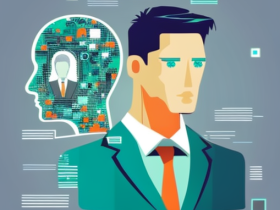Powering the Future of Data Centers
In a groundbreaking initiative, Microsoft is harnessing the power of artificial intelligence to simplify the bureaucratic maze involved in gaining approval for next-gen nuclear reactors. The end goal? To fuel Microsoft’s data centers, where the computational prowess of generative AIs is put to the test.
The Growing Demand
As of November 2023, OpenAI’s ChatGPT had amassed a staggering 100 million weekly users, making it clear that the hunger for advanced AI is real. Addressing the queries of this massive user base requires substantial computing power, a responsibility Microsoft is embracing wholeheartedly. With a reported investment of $13 billion in OpenAI, Microsoft not only supports the startup financially but also takes charge of training the generative AIs through a colossal supercomputer and provides the necessary processing power in its data centers.
Navigating Regulatory Waters
The journey to gain approval for new nuclear reactors is neither cheap nor simple. Microsoft is setting its sights on utilizing nuclear energy, specifically from small modular reactors (SMRs), to meet the escalating electricity demands posed by generative AI. Unlike traditional power sources, nuclear energy stands out by producing no carbon emissions. Additionally, unlike solar and wind power, which are weather-dependent, nuclear reactors can generate electricity regardless of the weather conditions.
Overcoming Regulatory Hurdles
While the environmental benefits are evident, the regulatory path for SMRs in the U.S. is uncharted territory. NuScale, the sole company to achieve approval, spent a staggering $500 million and submitted a comprehensive application consisting of 12,000 pages, supported by over 2 million pages of accompanying documents.
Microsoft’s Strategic Alliance
To expedite this intricate approval process, Microsoft has joined forces with Terra Praxis, a non-profit organization dedicated to decarbonization. Together, they aim to leverage generative AI to streamline the creation of necessary documents for regulatory approval.
The Role of AI
However, it’s crucial to note that the AI in question is not operating in an unsupervised manner nor generating the data for the documents independently. Eric Ingersoll, co-CEO of Terra Praxis, clarified that they are training a large language model on highly structured documents to produce another document with a structure nearly identical to its predecessors.
Streamlining the Future
Eric Ingersoll predicts a substantial reduction of up to 90% in the human hours required for the approval of a new SMR. While it’s premature to confirm this estimate, Microsoft remains optimistic about the potential of generative AI to expedite its nuclear vision.
Microsoft’s Excitement
Michelle Patron, Microsoft’s senior director of sustainability policy, expressed enthusiasm about the game-changing potential of AI in this domain. In an interview with the Wall Street Journal, she stated, “We’re really excited about the game-changing potential for AI in this space.”
In conclusion, Microsoft’s strategic move to integrate generative AI into the complex world of nuclear reactor approvals demonstrates a commitment to innovation. As the tech giant collaborates with Terra Praxis to pave the way for a more streamlined and efficient future, the possibilities for AI-driven transformations in traditionally intricate processes are indeed exciting.







Leave a Reply